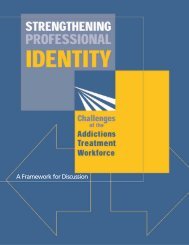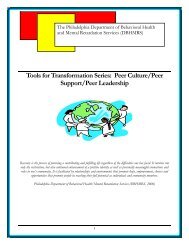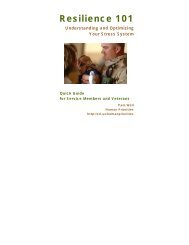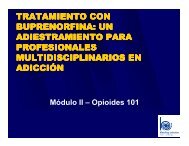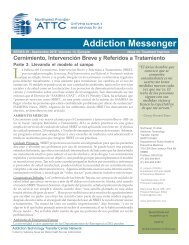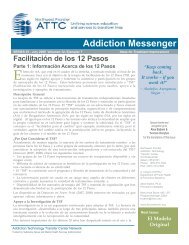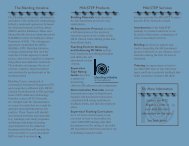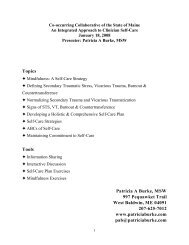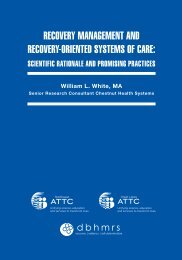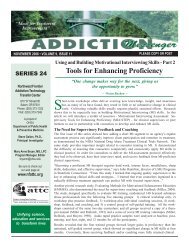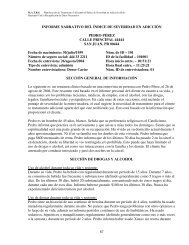alcohol and other drug problems among addiction professionals
alcohol and other drug problems among addiction professionals
alcohol and other drug problems among addiction professionals
Create successful ePaper yourself
Turn your PDF publications into a flip-book with our unique Google optimized e-Paper software.
When it comes to wellness, the natural inclination is to think in terms of providingeducation <strong>and</strong> support. However, all too often the information gathered atworkshops makes its way to the shelves, where it remains until it is moved overto make room for the manual from the next workshop. What is needed instead isa holistic program that looks at wellness on many dimensions <strong>and</strong> helps peopleimplement the practices they have learned. Team-building efforts are essential follow-upto wellness training programs.Discussions of the ADA provisions brought up the concept of “reasonable accommodations”that make it possible for people with disabilities to work. Whataccommodations might be necessary to promote wellness <strong>and</strong> continued sobriety<strong>among</strong> people in recovery?◆◆◆◆◆◆An underst<strong>and</strong>ing of the need-<strong>and</strong> provision of opportunities-for participationin community-based recovery support programsFully functioning EAPsEducation of non-recovering staff (e.g., supervisors <strong>and</strong> direct reports) in culturalcompetency regarding their recovering peers (e.g., “practicing what wepreach,” stigma-reduction efforts within the organization, not bringing personalbiases to work)Full integration of recovering employees into the professional treatment culture,healing the existing split between recovery <strong>and</strong> professional approachesCreation of organizational environments in which recovering staff feel securespeaking openly of their recovery status, allowing for easy <strong>and</strong> open discussion<strong>and</strong> a reduction of tension <strong>and</strong> stress around these issuesInvolvement of recovering staff in the development of policies <strong>and</strong> proceduresrelated to their status <strong>and</strong> issuesThe empathic, collaborative relationship with the client, so essential to effectivecounseling, is also essential to practitioner wellness. Counselors are responsible formaintaining resiliency <strong>and</strong> avoiding “depleted care,” the incidence of compassionfatigue <strong>and</strong> burnout. Factors that can lead to depleted care include work overload;lack of control; insufficient rewards; a breakdown of the sense of community in theworkplace; a lack of fairness, respect, or justice; a lack of meaningful, valuable work;<strong>and</strong> unaddressed or unresolved conflict.Wellness requires a balance between self-care <strong>and</strong> care for <strong>other</strong>s. The emphasison selflessness <strong>and</strong> sacrifice in the helping professions can sometimes hamperself-care <strong>and</strong> appropriate rewards for work well done, <strong>and</strong> can diminish people’ssense of self-worth <strong>and</strong> appreciation of their gifts.n 43 n



